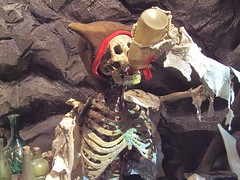Online Identity Protection
There is a very interesting write up on online identity over at the Satisfaction Unlimited Blog :
Five ways to build and defend your reputation online
Some of the points come through as common sense, but it is still nice and timely to identify the perils of living in an online world. Ars technica is also covering the case of too much online interaction affect users :
Escaping the data panopticon: Prof says computers must learn to “forget”
My personal favourite in the Satisfaction unlimited post is the countermeasure to a bad post by a disgruntled commenter. Instead of retreating from the web and hoping no one finds the bad post the best way to deal with it is become more prolific, thereby swamping the bad post with good posts. It is a bit simplistic but hiding a leaf in a forest just doesn’t go out of fashion.
It’s good that analysis’s like this are beginning to appear, hopefully they will filter down to the general populace in time before they make irreparable mistakes that could affect people and their careers, as what happened to Stacy Snyder, which was covered in the previous post :
I think a new concept will need to be introduced to the general populace, your professional name. People in the entertainment industry have been using this concept for a while, you are your name and your name is your brand. For regular punters your professional name is also your given name, it is what you will eventually open bank accounts with, travel international as, get degrees with and apply for jobs under. So it is all important that you professional name has no black marks against it.
The simple way to manage this is to never use your professional name on the internet for any reason what so ever. For web 2.0 it is easier to start a clean identity and be a gregarious or obnoxious as you want and be relatively assured that it won’t be easily traced back to you professional name. Unfortunately you have little no no control over other people using your professional name on the internet, you may be able to ask friends not to use it.
Admittedly creation of random identities does leave the path open for random sock puppetry and managing an alternate identity can hard if it gets popular, especially if an online identity crosses back into you professional job. However at the end of the day it is a lot easier to destroy an out of control online identity than rescue a tarnished professional name.

